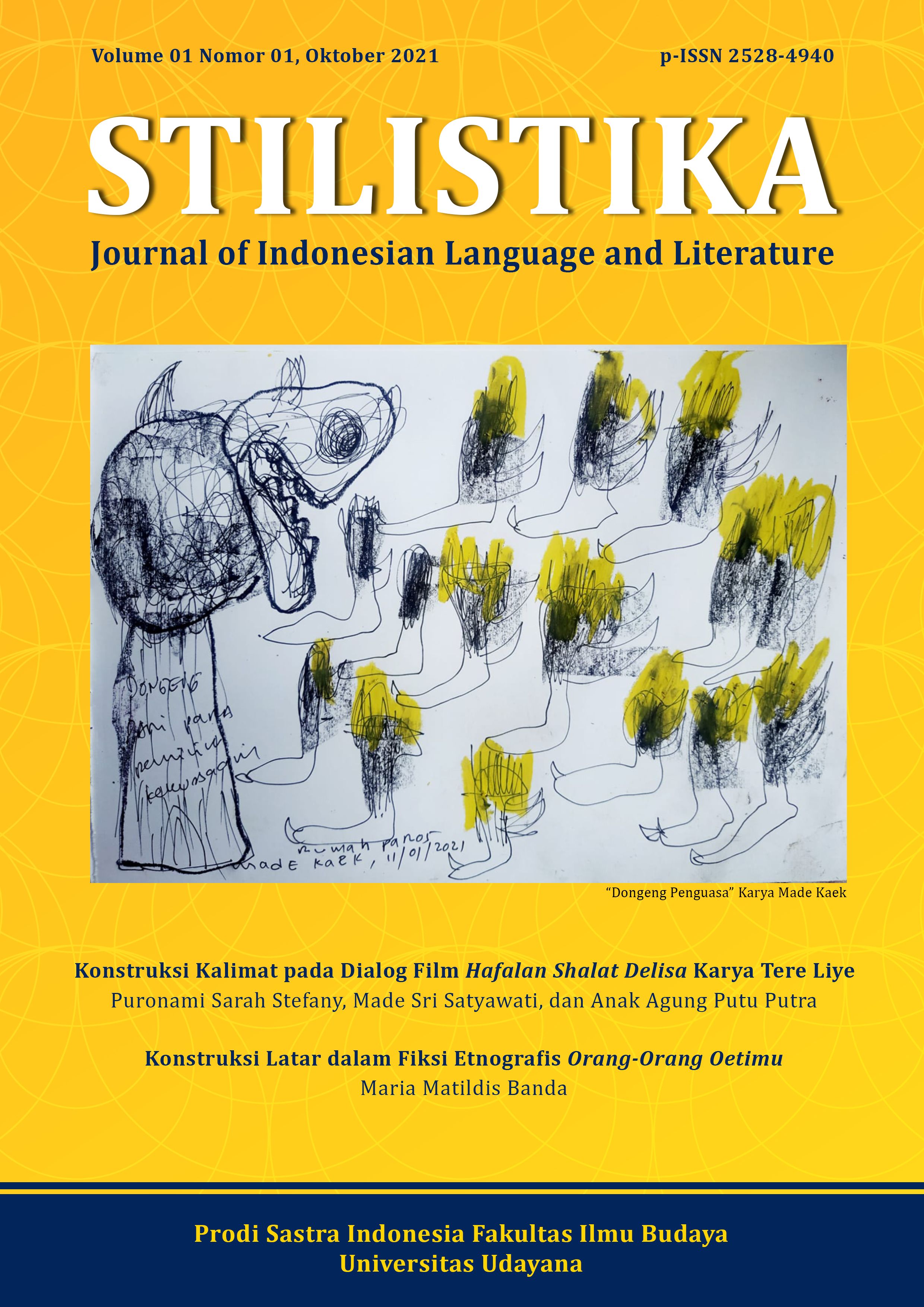Analisis Kohesi, Koherensi, dan Skematik Teks Surat Pembaca Bali Post Terkait Covid-19 Periode Maret-Agustus 2020
Abstract
This study discusses cohesion, coherence, and schematic in the text of the Bali Post reader's letters. Reader's letters contain short letters written by the public with topics that are in accordance with the current situation and related to the public interest. The choice of topics related to Covid-19 is due to the fact that currently many people are writing their complaints due to the Covid-19 pandemic or expressions of praise related to handling Covid-19 which are conveyed through letters to readers of Bali Post. The reader's letter written by the community is interesting to analyze in terms of cohesion, coherence and schematic. The purpose of this study was to determine the tools of cohesion, coherence and schematic of the text of the Bali Post reader's letter. The methods and techniques of data collection used in this study are the method of listening to the technique of note taking. At the data analysis stage, the distribution method and the matching method were used with the deletion and substitution techniques. The theoretical basis used in this research is discourse theory in which there is cohesion proposed by Halliday and R. Hasan (1976:4), coherence proposed by Kridalaksana (in Mulyana, 2005:32) and schematic/superstructure analysis. proposed by Van Dijk (in Eriyanto, 2012:229). Based on the analysis, the following results were found. First, it was found the use of cohesion tools, both grammatical cohesion consisting of reference, substitution, deletion, and concatenation as well as lexical cohesion consisting of repetition, word equivalents, opposites, synonyms, and equivalence. Second, the elements of coherence found include cause-and-effect relationships, means-result relationships, cause-reason relationships, means-end relationships, conclusions-setting relationships, slack-result relationships, conditional-result relationships, comparative relationships, and relationships paraphrastic, amplification relationship, time/temporal additive relationship, nontime/temporal additive relationship, identification relationship, generic-specific relationship, and like relationship. Third, a schematic of the text was found consisting of a title structure, opening structure, content structure, and closing structure.
Downloads
References
Eriyanto. 2012. Analisis Wacana: Pengantar Analisis Teks Media.Yogyakarta: LkiS.
Halliday, M.A.K dan Ruqaiya Hasan. 1976. Cohession in English. London: Longman.
Kesuma, Tri Mastoyo Jati. 2007. Pengantar (Metode) Penelitian Bahasa. Yogyakarta. Carasvatibooks.
Lingga, Ronny Rosintan. 2019. “Analisis Kohesi, Koherensi dan Peristilahan Medis pada Wacana Media Saluran Youtube Clarin Hayes". Skripsi Program Sarjana (S-1) Sastra Indonesia Universitas Udayana, Denpasar.
Mulyana. 2005. Kajian Wacana, Teori, Metode dan Aplikasi Prinsip-Prinsip Analisis Wacana. Yogyakarta: Tiara Wacana.
Nazir, Moh.2011. Metode Penelitian. Jakarta: Ghalia Indonesia (PDF).
Rani, Abdul, Bustanul Arifin dan Martutik. 2006. ANALISIS WACANA: Sebuah Kajian Bahasa dalam Pemakaian. Malang: Bayumedia.
Sifandi. 2018. Wacana Pengampunan Pajak: Kajian Kohesi dan Koherensi. Skripsi Program Sarjana (S-1) Sastra Indonesia Universitas Udayana, Denpasar.
Sudaryanto. 2015. Metode dan Teknik Analisis Bahasa: Pengantar Penelitian Wahana Kebudayaan secara Linguistis. Yogyakarta: Sanata Dharma University Press.
Sumarlam. 2003. Analisis Wacana: Teori dan Praktik. Surakarta: Pustaka Cakra






